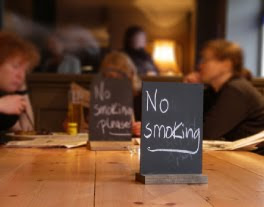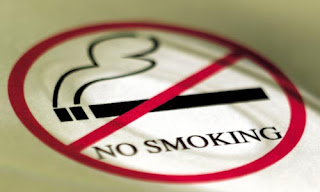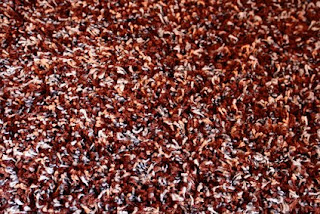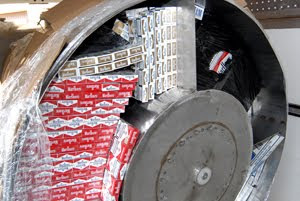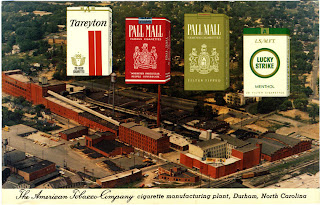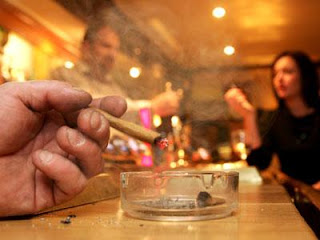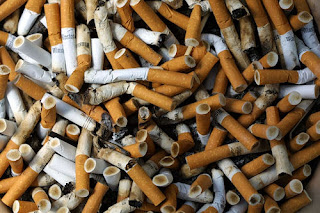
The Tobacco Indemnification and Community Revitalization Commission’s mission also ensured its failure, according to a former member.
Barnie Day of Patrick County, a former delegate who also served on the Tobacco Commission until 2010, said Wednesday the commission “did a lot of projects, and every one of them had merit, but when you ask the question, ‘Have we reinvented the economy in Southwest Virginia,’ the answer is ‘no,’” he said. “I don’t think we could have.”
Day said he detailed many of his concerns about the Tobacco Commission in a June 20, 2007, letter to the commission.
The “seeds of this inevitable failure were, I believe, sown in the beginning with our original charge of revitalizing or ‘re-inventing’ the ‘tobacco region’ economy,” he wrote. The task “simply cannot be done for one or two billion dollars. I doubt it can be done for a hundred billion.
“Laying aside our legislative mandate, we have fertilized and watered the seeds of our own failure,” he wrote.
The 31-member commission was created in 1999 to disburse Virginia’s share of the settlement from a national lawsuit against cigarette makers. The group was tasked with revitalizing and diversifying the economy in Virginia’s tobacco-growing region.
The commission has seven grant programs, each with different criteria, according to its website, www.tic.virginia.gov. Eligible applicants include local governments, economic development organizations and IRS-designated nonprofits, the website stated.
The commission staff reviews applications for feasibility and the potential to positively impact the regional economic base. The staff then makes recommendations to the commission committees, according to www.tic.virginia.gov.
Committee recommendations are made in public meetings and then forwarded to the full commission for final action at quarterly meetings, the website stated.
Since 2000, the commission has awarded $756 million in economic development and revitalization grants in 41 Virginia localities, including Henry and Patrick counties, according to the Joint Legislative Audit and Review Commission (JLARC), which recently evaluated the commission’s performance.
JLARC stated that the commission had signed off on millions of dollars in economic development projects with a sketchy understanding of them, and some yielded little or no benefit in the state’s poorest region.
The review, which was released Monday, found there was no way to measure outcomes for 89 percent of 1,368 project grants by the commission in the past 11 years.
Day said he “strongly supported” the review and was not surprised by its findings.
“For some time now, I have had a nagging undertow of doubt about the path we as a commission are following,” Day wrote in the 2007 letter. The doubt “has hardened to the point that I am now convinced that if we stay on our present course, we will fail.”
“A billion dollars is a lot of money and, simultaneously, not much. It will buy one tricked-out stealth bomber, or pick up our tab in Iraq Monday through Wednesday, or float the Commonwealth of Virginia’s annual budget for about 10 days,” he continued. However, “it will not, long-term, revitalize the economy of a distressed region.”
While every project had merit, Day asked, “‘Will any of them make a 100-year difference?’ ... I don’t know how you would answer that question ... but it seems to me that we must think bigger — a lot bigger,” he wrote.
He urged the commission to “focus the billion dollars we have remaining — not on hundreds of ‘be nice to haves’ — but on one or two moon-shot-equivalent projects.”
Day was “absolutely right,” according to Charles Hawkins, a former state senator from Chatham who also was long-time chairman of the tobacco commission.
But, some of those smaller projects “made a huge impact” in localities, Hawkins said. What is considered “waste in one person’s eye is considered a God-send in another’s,” he said.
Hawkins said he has no issue with JLARC’s review of the commission.
“We have nothing to hide. I think we have done remarkably well,” Hawkins said. There are many “things we can all look at with pride,” including broadband projects and education, he added.
“I think many people” from other areas “don’t understand what we went through, (and) what we are going through,” he said. “We had our teeth kicked in,” and the commission was tasked with reinventing a region.
“You can nitpick anything you want to nitpick, but” all factors must be considered, including the tobacco farmers who were losing their livelihood, he said.
The commission has tried to be as transparent as possible from its beginning, Hawkins said.
It now has been examined by two outside agencies, JLARC and a Blue Ribbon Panel chaired by former Gov. Gerald Baliles in 2008.
In the end, history will determine the success of the Tobacco Commission, Hawkins said, and “I think history will be very kind to us.”

